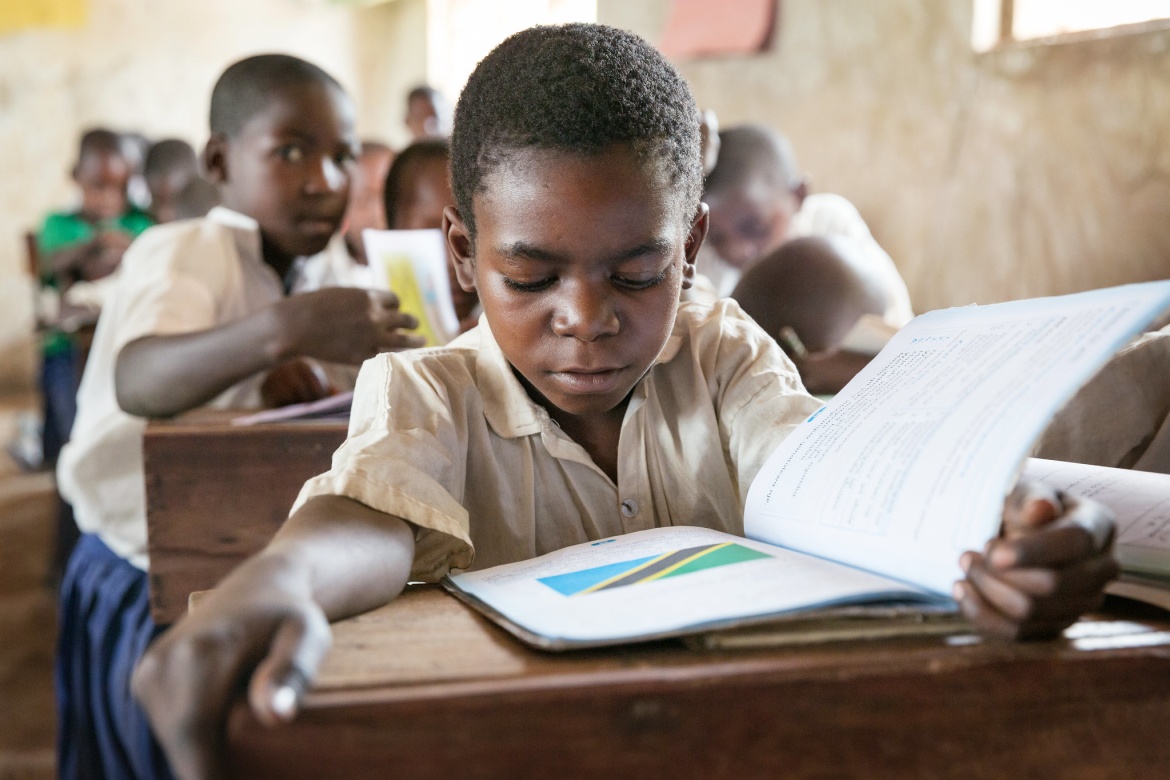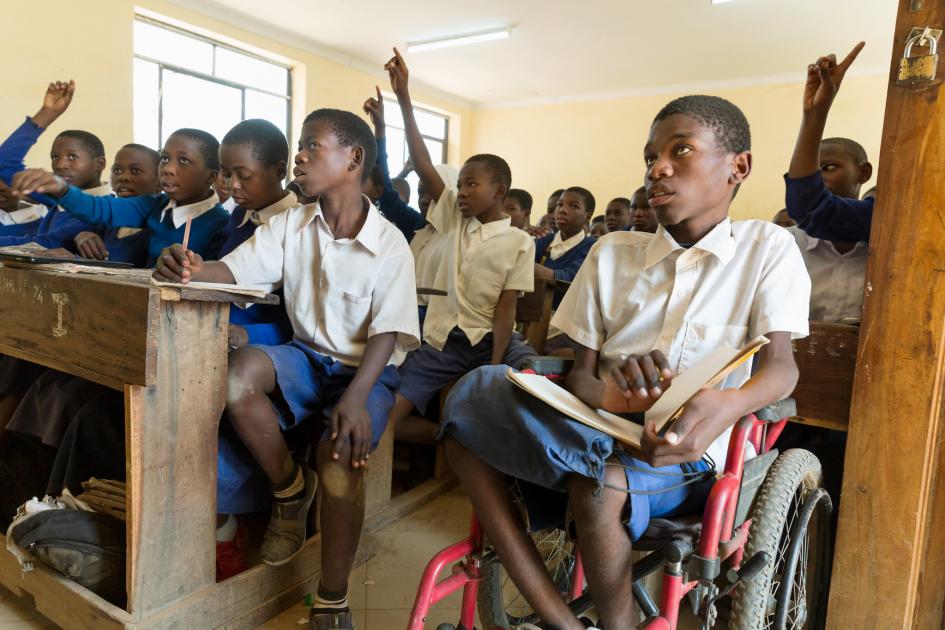Tanzania is considered one of the African countries that pays great attention to education. Education is a fundamental basis for the development of society and its advancement towards a better future. In this article, we present the challenges and reforms of the education system in Tanzania, as well as the role of education in achieving sustainable development in the country.
Definition of education in Tanzania
Education in Tanzania is the process of transferring knowledge and skills from one generation to another. Education in Tanzania aims to develop the intellectual and physical abilities of individuals, enabling them to actively participate in improving their personal lives and the development of society in general.

Education in Tanzania
The importance of education in the development of society
Education is a vital foundation for the development of society in Tanzania. It gives individuals the opportunity to develop their skills and increase their knowledge, thereby contributing to raising the standard of living and achieving progress and overall prosperity of the country. By providing high-quality educational opportunities, education contributes to the creation of a qualified generation of male and female citizens who are able to contribute to the development of the entire society.
Ahad Association’s contribution to supporting education in Tanzania
AHAD is one of the associations that plays an important role in supporting education in Tanzania. The association works to provide educational opportunities for children and youth in poverty and disadvantaged areas of the country. Through its educational programs and projects, AHAD provides many benefits and tools necessary to enhance the quality of Education.
AHAD’s contributions to education support include the implementation and development of schools and educational centers, providing them with the necessary resources and equipment such as textbooks and school tools. The association also seeks to provide complementary lessons, workshops and innovative educational programs that enhance students ‘ skills and help them realize their full potential.
In addition, AHAD supports the development of teachers ‘ skills by organizing intensive training courses and workshops. These efforts are aimed at improving the level of education and developing educational competence in schools, giving students better opportunities to get a quality education and achieve their academic success.
In general, the AHAD Association is a great example of one of the institutions that is working hard to promote education in Tanzania. Through its continuous and continuous efforts, the association contributes to giving golden opportunities to the younger generations to learn and develop their future in a brighter and more successful way.
History of education in Tanzania
The history of education in Tanzania spans from the nineteenth century where educational institutions were confined to the foreign population. After the British colonization, the education system was greatly affected and schools expanded and educational opportunities for the local population increased.

Education in Tanzania
History of education in Tanzania from the XIX century
The history of education in Tanzania dates back to the XIX century, as the country experienced a strong influence from British colonization. The government has made significant transformations in the education system, starting with the establishment of schools and the development of curricula, which has led to an increase in learning opportunities for the population.
The impact of British colonialism on education
The impact of British colonialism on education in Tanzania was evident, as the colonialists enforced an educational system intended to serve their own interests. This system has left a negative impact on the quality of education and the division of society based on the level of education that individuals receive.
The education system in Tanzania
The education system in Tanzania consists of three stages: primary, secondary and university education. The educational system of Tanzania provides opportunities for the development of academic, technical and professional skills of students. Educational institutions in Tanzania include public and private schools and universities.
Stages of education in Tanzania
The stages of education in Tanzania consist of three levels: primary education, secondary education, and university education. Primary education starts from the age of 7 to 14, followed by four-year secondary education, and finally university education at various universities and colleges.
Types of educational institutions in Tanzania
Tanzania has a variety of educational institutions, including public and private schools, universities and colleges, and technical centers. These institutions provide opportunities for students to receive high-quality education in various specialties and educational levels.

The challenges of education in Tanzania
Tanzania faces several challenges in the field of Education. These challenges include the economic gap that affects students ‘ access to education, as well as the problems faced by educational institutions such as a shortage of teachers and a lack of facilities and resources.
The economic gap and its impact on education:
Tanzania is facing a significant economic gap that affects the quality of education provided. Students suffer from a lack of financial resources and poor infrastructure, which leads to difficulties in obtaining a quality education. Improvements in the economic system can support the development of education in the country.
Problems experienced by educational institutions
Educational institutions in Tanzania face many problems, among which are a lack of funding and resources, a high student-teacher ratio, and a weak infrastructure. It also suffers from a shortage of qualified teachers and difficult access to rural areas. These problems negatively affect the quality of education in the country.
Education reform in Tanzania
Tanzania is currently reforming the education system with the aim of enhancing the quality of education and improving student outcomes. Efforts to carry out reforms include modifying educational curricula, improving teacher training, and providing resources to improve the learning environment in schools.
National plan for the development of education in Tanzania
The national plan for the development of education in Tanzania aims to improve the quality of education and increase learning opportunities for all students. The plan includes the modernization of educational curricula and teacher training, as well as the development of school infrastructure and securing the necessary financial resources.
Curriculum reform and teacher training
Curriculum reform and teacher training are among the most prominent challenges facing the education system in Tanzania. This requires updating the curricula to suit the needs of the labor market, and providing training programs to better qualify teachers, to ensure the quality of education and improve educational performance.
Education and gender in Tanzania
The issue of gender in education in Tanzania is an important issue. The situation discriminates against women and education opportunities for marginalized groups. Achieving equality requires equal access to education for all and the elimination of all forms of discrimination and societal restrictions.
Discrimination of women in education
Women in Tanzania suffer from discrimination in the field of Education. They may face difficulties in accessing, staying and progressing in education. Societies should promote the importance of achieving gender equality in education and providing equal opportunities for success for all.
Promoting the importance of equality in education
Promoting the importance of equality in education is one of the top priorities in Tanzania. All children, regardless of their gender or background, should have equal educational opportunities. Achieving equality in education contributes to building a sustainable and progressive society.
Education and poverty in Tanzania
Tanzania faces significant challenges in the field of education due to widespread poverty. Poverty affects children’s access to quality educational opportunities and hinders the development of schools and the possibility of providing an existing infrastructure. However, there are ongoing efforts to address this problem and improve educational opportunities for vulnerable groups.
The impact of poverty on education and the future of children
Tanzania suffers from the problem of poverty and the negative impact it has on education and the future of children. Many children in Tanzania are unable to get a good educational opportunity due to poor resources and difficult access to schools. This challenge greatly affects their development and future life chances.
Joint efforts to solve the problem of poverty and education
The Tanzanian government, in cooperation with non-governmental organizations and international partners, is working to achieve progress in the field of education and poverty eradication. These efforts include providing education opportunities to underprivileged children, developing school infrastructure and training teachers.
The role of education in sustainable development in Tanzania
Education plays a crucial role in achieving sustainable development in Tanzania. Education contributes to improving the standard of living of individuals and enabling them to acquire the skills and knowledge necessary for the development of the country. It also contributes to the promotion of Health, the preservation of the environment and the promotion of gender equality.
Promoting the importance of education in achieving sustainable development
Education has a crucial role to play in achieving sustainable development in Tanzania. It provides young people with the necessary skills to participate in the labor market and develop society. Education contributes to improving livelihood opportunities, reducing poverty, and promoting equality in all its aspects.
The impact of education on people’s lives and the future of the country
Education has a huge impact on people’s lives and the future of the country. It helps to build more advanced societies and strong economic development. Thanks to quality education, individuals can improve their job prospects and increase their income. Education also promotes innovation and technological development, which leads to an economic renaissance of the country.
Related articles:
The cost of building a mosque in Nigeria



